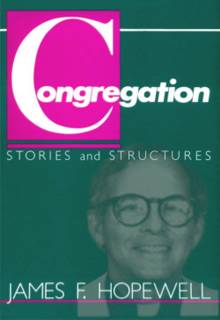 When you hear the phrase “theological reflection” it is usually applied to to theological students in the context of field education. Yet most people writing about theological reflection expect that the predominant context will be groups of people in congregational settings working together to make sense of their lives. So why do we expect the professional theologians to talk theology while everyone else just ‘does it’?
When you hear the phrase “theological reflection” it is usually applied to to theological students in the context of field education. Yet most people writing about theological reflection expect that the predominant context will be groups of people in congregational settings working together to make sense of their lives. So why do we expect the professional theologians to talk theology while everyone else just ‘does it’?
James Hopewell, before his death in 1984, challenged his peers in theological education circles to think beyond clericalism. Seminaries needed to think beyond the formation and equipping of ordained ministers. When working through the stories, symbols and meanings of ministry experience, groups should be considering not just individuals, but whole congregations.
Hopewell distributed the draft of an essay to his colleagues in 1983 – proposing that the new paradigm of theological education should be the development of the life and faith of the congregation. His research was published in more detail after his death in the book “Congregations: Stories and Structures“, edited by Barbara Wheeler in 1987. The essay was responded to by his colleagues in another book, “Beyond Clericalism: The Congregation as a Focus for Theological Education“, edited by Barbara Wheeler and Joseph Hough in 1988. Barbara Wheeler and Edward Farley continued the conversation in the collation of essays: “Shifting Boundaries: Contextual Approaches to the Structure of Theological Education“, in 1991.
Much of Hopewell’s thesis comes from the experience of beginning a new church plant with a team of lay members, each of whom helped shape the culture of a thriving church over four years. He saw the impact of narrative – shared stories – on the culture and ethos of this congregation in the same way he’d seen earlier in African villages. Context was not just something to be considered when entering strange cultures – it was a factor in the local American congregation. Also a factor in the American seminary.
The implications of Hopewell’s thesis have deepened as theologians have learnt to take the congregation seriously. Nancy Ammerman’s congregational studies are now standard texts. Alban Institute’s work on the local congregation has become a core part of our learning. Don Browning, still the academic, encourages his readers and fellow scholars to take congregational theology seriously. Theological reflection is the domain of local teams of mission agents who may or may not include ordained clergy.
